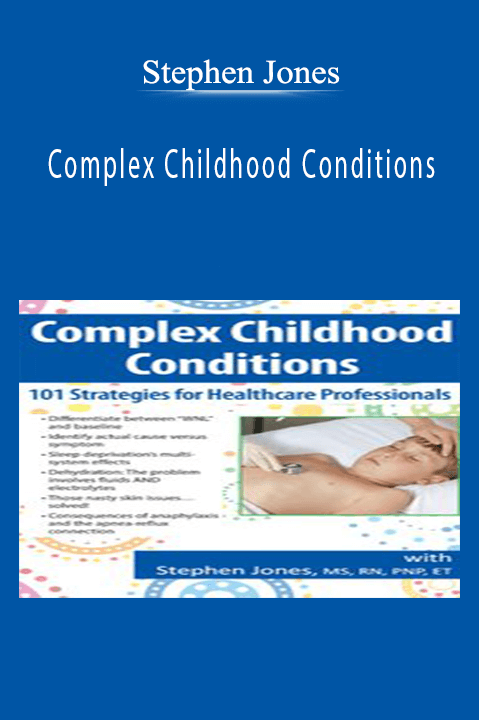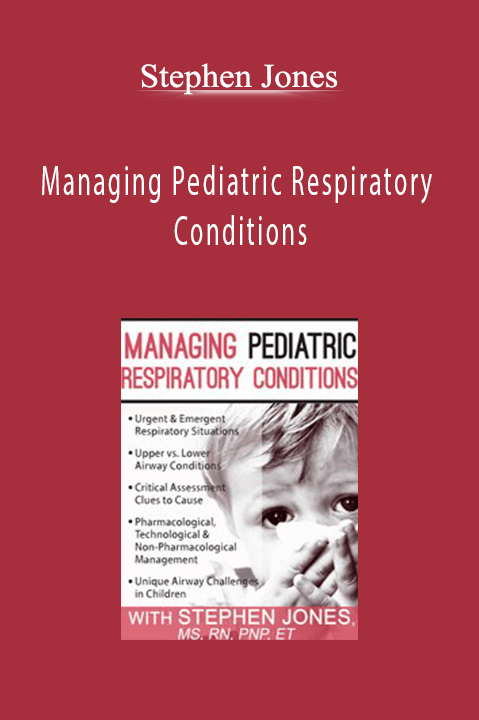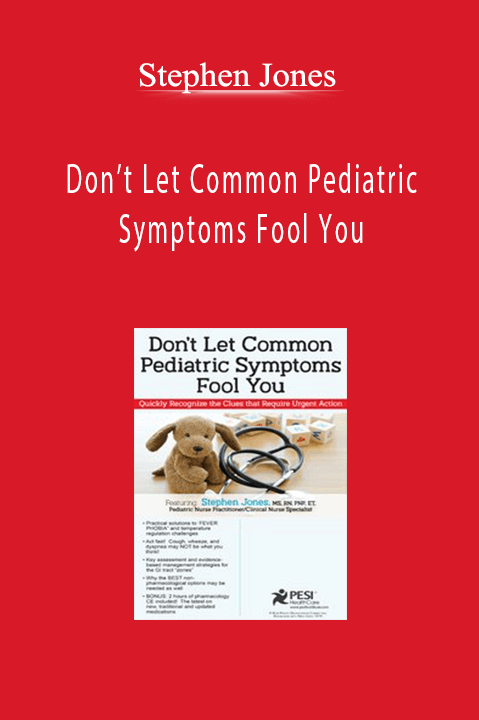Life-Threatening Pediatric Emergencies – Stephen Jones
- Respiratory Emergencies
- Cardiac Emergencies
- Gastrointestinal Emergencies
- Neurological Emergencies
- Trauma: Sports/Non-Sports Related
- Anaphylaxis
- Infectious Diseases
- Child Abuse and Maltreatment
- Ingestions and Poisonings
- Diarrhea and Dehydration
Children are not small adults and infants are not small children. Each child and infant is a unique individual, requiring unique interventions. Do you care for pediatric patients in your work place? Are you around children in your neighborhood? Perhaps you attend community events with children in attendance? As a healthcare professional, you may be called upon to be a first-responder, part of a resuscitation team, or someone caring for the child and family in acute or primary care settings.
You will leave this educational event with practical strategies for recognition, management and prevention of a myriad of pediatric urgent and emergent conditions. As a pediatric clinical nurse specialist and pediatric nurse practitioner caring for children with life-threatening emergencies on a routine basis, Stephen Jones, MS, RN, CPNP, ET, understands the need for rapid and appropriate treatment responses for this age group in particular. Attend this seminar and learn from Stephen’s vast experiences working “in the trenches”. He will provide many helpful insights from his extensive and on-going clinical career and practical, evidence-based interventions to guide the treatment of the most challenging pediatric urgencies and emergencies that present. You are guaranteed to leave this day immediately ready to improve the actual outcomes for your own pediatric patients – and perhaps more importantly, know key interventions to avoid any preventable negative consequences while these young patients are under your watch!
OUTLINE
Pediatric Stabilization & Critical Assessment Goals
- Essential data to collect
- Primary and secondary survey:
- Assessment and interventions
- Immediate interventions for life-threatening situations
- Hypothermia and its multisystem implications
- Code medications: The “Big 3”
Technology: The Benefits & the Pitfalls
- Respiratory devices: Delivery systems, oxygen therapy, mist, humidification
- Pulse oximeter
- Interpreting key laboratory findings
- EEG and lumbar puncture
Suspecting Child Abuse
- Shaken baby syndrome
- Munchausen by proxy
- Child maltreatment
- Mandatory reporting
Infectious Diseases
- Group b strep
- Bacterial/viral meningitis
- Toxic shock syndrome
- Herpes: Simplex and encephalitis
- Kawasaki disease
- Rheumatic Fever
- Influenza
- Fever and hyperthermia management
Ingestions & Poisoning
- GI decontamination
- “Pharming” implications
- OTC medications: Cold/cough preparations, acetaminophen, NSAIDs
- Alcohols, hydrocarbons
- Lead intoxication
Gastrointestinal Emergencies
- Pyloric stenosis
- Necrotizing enterocolitis
- Malrotation/Bowel obstruction
- Appendicitis
- Diarrhea and dehydration:
- Evidence-based guidelines
Trauma in Children
- Sports and non-sports related injuries
- Abdominal trauma: Bowel perforation, spleen & liver laceration
- Chest trauma: Pulmonary contusion, pneumothorax, hemothorax, flail chest
- Neurological involvement:
- Head trauma: TBI, cerebral edema and concussions
- Seizures
Cardiovascular Emergencies
- Hypertrophy cardiomyopothy
- Cardiomyopathies
Anaphylaxis
- Prevention & initial/acute management
- Anaphylactic shock
- Optimizing use of the Epi pen
Tonsillitis
- Croup: Viral and bacterial
Respiratory Emergencies: Upper Airway
- Pneumonia
- Bronchiolitis (RSV/Non-RSV)
- Pertussis
- Asthma
OBJECTIVES
- Explain the latest strategies useful in evaluating pediatric life-threatening situations.
- Formulate both non-pharmacological and pharmacological options used to manage pediatric life-threatening situations.
- Differentiate between various infectious diseases and the most up-to-date interventions for each.
- Choose the current treatment recommendations for the most commonly ingested agents.
- Apply the latest evidence-based guidelines for optimal treatment of significant diarrhea and dehydration.
- Assess a variety of traumatic injuries seen in children and the best practice initial response to make the difference in outcomes.
- Determine the optimal and immediate interventions for the cardiac emergencies likely to present in children.
- Explain the medication management of distributive anaphylactic shock.
- Compare clinical presentation between various lower and upper airway diseases.
Get Download Life-Threatening Pediatric Emergencies – Stephen Jones at Offimc.click Now!
Delivery Information
- Upon ordering the product, a delivery email with download instructions will be sent immediately to you so that you may download your files. If you log in (or create an account) prior to purchase you will also be able to access your downloads from your account dashboard.
- It is a digital download, so please download the order items and save them to your hard drive. In case the link is broken for any reason, please contact us and we will resend the new download link to you.
- If you don't receive the download link, please don’t worry about that. We will update and notify you as soon as possible from 8:00 AM – 8:00 PM (UTC+8).
- Please Contact Us if there are any further questions or concerns you may have. We are always happy to assist!












7 reviews for Stephen Jones – Life–Threatening Pediatric Emergencies
There are no reviews yet.